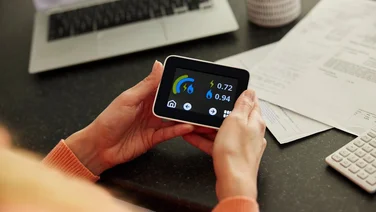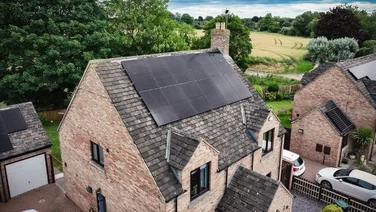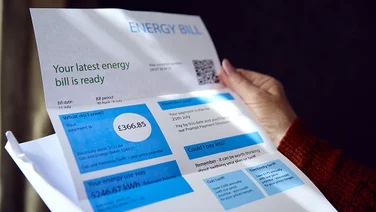- How many people have actually heard of a heat pump?
- How many people are aware of the government’s heat pump grant?
- How many Brits will buy a heat pump in the next year?
- How many Brits would get a heat pump if it were free?
- How many UK homes currently have a heat pump?
- Why has the UK’s heat pump rollout been so bad?
- Summary
Just half of Brits have heard of heat pumps, according to our annual National Home Energy Survey.
And a horrendously low 27% are aware of the government’s Boiler Upgrade Scheme, which provides free discounts of £5,000 or £6,000 on the cost of getting a domestic heat pump.
Our survey of 2,134 adults shows the public is enthusiastic about heat pumps, and installation figures have climbed rapidly over the past two years.
But publicity and education around heat pumps has fallen well short, resulting in a population that doesn’t know about this piece of green technology or its benefits.

How many people have actually heard of a heat pump?
51% of Brits are aware of heat pumps.
That doesn’t mean they understand what a heat pump is or does, just that at the very least, they’ve heard of it.
Heat pumps will play a crucial part in decarbonising homes and reducing energy bills over the next few decades.
To reach the legally binding target of net zero emissions by 2050, the independent Climate Change Committee has said the government must ensure 3.3 million domestic heat pumps are fitted by 2030.
The government has set its own goal of 600,000 heat pump installations per year by 2028.
And yet, appallingly, half of all Brits don’t even know what a heat pump is, let alone want to get one for their own home.
Heat pump awareness by region

The region with the highest awareness of heat pumps is Wales, at 61%.
This is followed by the south-west and Yorkshire, with 59% and 58% awareness respectively.
The least aware region is Greater London, where just 38% of people have heard of a heat pump.
This is a travesty and a waste, as Londoners are among the most concerned and climate-conscious people in the UK.
People in the capital are the most likely to acknowledge we’re in a climate change emergency, at 81%, and the second-most anxious about this catastrophic phenomenon.
Londoners were also the most likely to have heard of at least one of the 10 low-carbon products we asked them about – but not when it came to heat pumps.
Heat pump awareness by generation

The older the person, the more likely they are to be aware of heat pumps, according to our survey.
This holds true across the generations. Just 23% of Gen Z (born 1997-2013) have heard about heat pumps, rising to 39% of Millennials (born 1981-1996).
On the other end of the scale, 71% of the Silent Generation (born 1928-1945) are aware of heat pumps, as are 64% of Boomers (born 1946-1964) and 54% of Gen X (born 1965-1980).
Enthusiasm levels also rise with age.
Just 12% of Gen Z and 20% of Millennials would buy a heat pump if money was no object, compared to 35% of Silent Generation respondents.
However, in terms of actual plans, Gen Z is the most committed age group, with 6% planning to buy a heat pump over the next 12 months.
Just 4% of Millennials are planning on purchasing one, along with 3% of Gen X, 2% of Boomers, and 1% of the Silent Generation.
How many people are aware of the government’s heat pump grant?
73% of people are not aware of the government’s heat pump grant, called the Boiler Upgrade Scheme.
This is a horrendously high figure, considering this scheme can get homeowners in England and Wales £5,000 or £6,000 off the cost of a heat pump installation, for free.
The three-year, £450 million grant started in May 2022, meaning the government has spent nearly a year abjectly failing to turn it into a success by refusing to promote it.
In the scheme’s first nine months, the government paid out 8,689 grants – which is 61% short of the 22,500 it should’ve provided so far.
It’s spent £43.7 million, but it should’ve spent £112.5 million – falling 61% short once more.
And so we reach a point where just 27% of people know about a scheme that halves the initial cost of the average air source heat pump.
Understandably, this figure rises to 32% of homeowners, compared to 20% of tenants, but these numbers are still far too low.
In fact, a lower percentage of people in the north-east (16%) have heard of the scheme than in Scotland (20%), despite the fact that the scheme doesn’t even exist in Scotland.
Out of every demographic, the groups with the highest awareness of the grant were those who earn between £100,000 and £149,999 – and those who earn £150,000 to £199,999.
These groups, which had an awareness rate of 46% and 41% respectively, are among the minority of people in the country who can afford a heat pump without government help.
The government’s response to our findings
We asked the government’s Department for Energy Security and Net Zero about the fact that 73% of respondents haven’t heard of the Boiler Upgrade Scheme.
The department responded by quoting the amount it’s paid out so far – which is horribly short of where it should be – and by pointing to its horrendously late promotional campaign.
A spokesperson said: “Despite it being a challenging year for the energy sector, the Boiler Upgrade Scheme has paid out £43.7 million of vouchers to installers so far.
“We’ve recently launched a targeted marketing campaign to increase public awareness, with the scheme also being part of the government’s wider energy efficiency awareness campaign.
“We will consider options such as increased marketing, as well as keeping grant levels under close review.”
How many Brits will buy a heat pump in the next year?
| Low-carbon technology | Planning to buy in next 12 months | |||||||||
|---|---|---|---|---|---|---|---|---|---|---|
| Electric vehicle | Electric vehicle charging point | Heat pump | Hydrogen boiler | Infrared panels | Microwave boiler | Smart appliances | Smart meter | Solar panels | Solar thermal | Storage battery |
| 16% | 6% | 3% | 1% | 1% | 1% | 19% | 14% | 10% | 2% | 4% |
Just 3% of Brits plan to buy a heat pump over the next 12 months.
This is an extremely low figure, especially when you compare it against the 10% of people who plan to purchase solar panels and 16% who intend to get an electric vehicle.
Heat pumps are cheaper than both of these products, thanks to the Boiler Upgrade Scheme – so why are just 70 people in our 2,134-person survey planning on buying one?
One respondent told us: “Some measures people won’t be aware of, some might seem daunting for people without the technical know-how, some probably seem like more trouble than they’re worth, and some involve too large an initial outlay even if they’ll save money in the long term.”
Unfortunately, heat pumps check every single one of these boxes.

Are heat pumps too expensive?
Heat pumps are too expensive for most income groups, according to our survey.
Just 2% of people with a household income under £100,000 bought a heat pump over the past 12 months.
In sharp contrast, 11% of respondents in the income groups between £100,000 and £200,000 have purchased a heat pump in that time.
Considering that enthusiasm for heat pumps peaks among people with household incomes between £40,000 and £100,000, this is a clear sign that heat pumps are too expensive.
How many Brits would get a heat pump if it were free?

24% of Brits would get a heat pump if money was no object.
This is significantly less than the 51% who would get solar panels, and the 54% who would get an electric vehicle.
However, it would still equate to 6.7 million heat pumps in homes – putting us well on the way to reaching the Climate Change Committee’s target of eight million installed by 2035.
We must achieve this goal if the UK is going to reach net zero, and it’s clear to see why – after all, these 6.7 million heat pumps would eliminate 459 million tonnes of CO2 over the next 20 years.
This would reduce residential emissions by one-third.
How does this change across the UK?

People in Wales are the most keen to get a free heat pump, with 33% saying they’d want one if money was no object.
The north-east, Yorkshire, and the East Midlands are the next most enthusiastic UK regions when it comes to heat pumps.
As you move south however, the picture changes.
The south-east and south-west of England are in the bottom half, while Greater London occupies the bottom spot, with just 16% of people saying they’d want a free heat pump.
This may be down to the capital having more homes that make heat pump installation tricky, such as flats and terraced houses – whereas fitting heat pumps in rural areas is usually simpler.
How many UK homes currently have a heat pump?
182,433 heat pumps have been installed at UK homes since 2009, according to the Microgeneration Certification Scheme.
Seeing as heat pumps typically last at least 20 years, these should all still be functioning.
Since the end of 2020, heat pump installations have soared.
More air source heat pumps have been installed in homes over the past two years (56,208) than in the previous five years combined (51,174).
The heat pump market is on the rise, but not nearly quickly enough.
Why has the UK’s heat pump rollout been so bad?
The UK’s heat pump rollout has been hamstrung by negative publicity, high price tags, and government inaction.
Homeowners are keen to make eco-friendly, cost-saving improvements, but don’t usually want it to significantly change the aesthetic or structure of their properties, if they can help it.
Heat pumps often require a number of bigger radiators, underfloor heating, and improved insulation to get the most out of them – plus a machine on the outside of your home.
With many people unclear on the benefits – leading to just 24% of survey respondents wanting a free heat pump – the costs seem to outweigh the benefits.
Enthusiasm is clearly growing, with 28,000 homes installing a heat pump over the past 12 months – but with costs still totalling £10,000 for the average three-bedroom household, most people need help to afford a heat pump.
Unfortunately, the Boiler Upgrade Scheme has failed at its primary goal: making people aware that they can get £5,000 or £6,000 off the cost of a heat pump.
Heat pump installations are at the same level that they were before the scheme started, and little wonder – only 27% of people know this free grant exists.
That’s down to a negligent government that needs to dedicate even an iota of energy to promoting heat pumps and its grant – or face missing legally-binding climate targets.
Explore the rest of our National Home Energy Survey 2023
Summary
Brits want to get heat pumps – not as much as they want solar panels or electric cars, but enough to reach the targets needed to hit net zero emissions by 2050.
The only things stopping them are misinformation and cost – and the government holds a large amount of responsibility for failing to tackle both of these.
Instead of creating a grant and forgetting to tell anyone about it, the government must step up and educate people about its scheme and the general advantages of heat pumps.
Anything less dooms us all to higher energy bills and a worse climate crisis.
To see how these results compare with last year’s survey, check out our National Home Energy Survey 2022.






